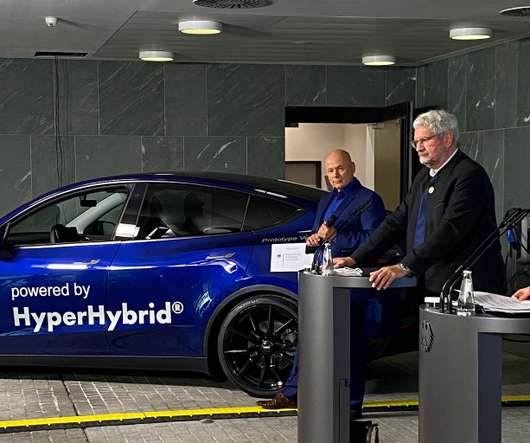CESifo: EVs not the best option for reduction in on-road CO2 in Germany given power mix
Green Car Congress
APRIL 20, 2019
Unfortunately, due to our grid situation, electric cars are still too early for this strategic goal in the sense of German climate protection efforts. According to the study, natural gas combustion engines are an ideal technology for transitioning to vehicles powered by hydrogen or “green” methane in the long term.











Let's personalize your content